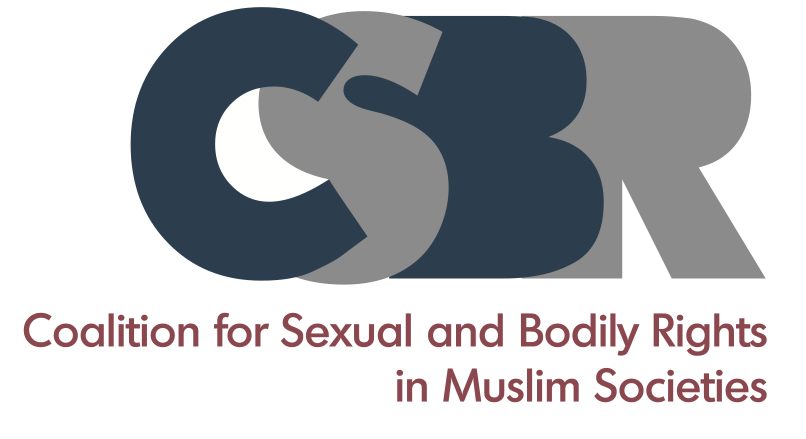31 August 2016
H.E. Recep Tayyip Erdoğan
President of the Republic of Turkey
T.C. Cumhurbaşkanlığı Genel Sekreterliği
06689 Çankaya, Ankara, Turkey
Tel: +90 312 525 5555
Fax: +90 312 525 583
Email: contact@tccb.gov.tr
Your excellency,
As members and allies of the Coalition for Sexual and Bodily Rights in Muslim Societies (CSBR), we are writing to call for justice, and to express our grief and despair, at the fate of Hande Kader, the 23 year-old transgender woman who was tortured, raped, and burned to death earlier this month.
Her body was found in Istanbul on 12 August 2016, and to our knowledge no effectual investigation has been made into her murder, and no steps taken by the authorities to bring the perpetrators of this unlawful act and violent crime to justice.
Hande Kader was a strong and outspoken young woman, who proudly worked for Turkish citizens to be able to exercise their inalienable civil, political and human rights. She earned a living as a sex worker. She is one of but too many Turkish citizens whose bodily integrity and lives have been brutally violated and cut short, by people whose bigotry and fear has manifested in unacceptable violence against women, violence against transgender youth, and violence against those who speak up for justice.
As many in the international community are asking, we ask you now, ‘how is beating, raping and burning someone to death more acceptable than being transgender?’ #HandeKadereSesVer
According to a civil society report, Turkey has the highest rate of reported murders of transgender persons in Europe, and the 9th highest rate of reported murder of transgender persons in the world.[1]
There is never an excuse for violence against women, and violent hate crimes cannot continue with impunity.
In 2012, Turkey took a historic step in being the first country to ratify the Council of Europe Convention on preventing and combating violence against women and domestic violence, which explicitly includes gender identity as categories of non-discrimination under Art. 4(3). It is the obligation of the state to fully address violence against women in all its forms and to take measures to prevent violence against women, protect its victims, and prosecute the perpetrators.
In accordance with Turkey’s commitments under the Istanbul Convention, we ask you:
- To publicly denounce the rape, torture and murder of Hande Kader, and ensure a full, effective investigation into her murder and the prosecution of the perpetrators;
- To ensure effective investigations of all reported gender-based hate-crimes in Turkey, including by allocating adequate resources and trainings to investigating agencies;
- To regularly run awareness-raising campaigns on prevention of violence and discrimination against transgender women and women sex workers, with effective collaboration from civil society groups;
- To consistently monitor, collect and publish statistical data on the number of complaints of violence against transgender women and women sex workers, the responses from the authorities to each complaint, and the results and redress available in each investigation of a complaint;
- To take all administrative measures to strengthen legal protections to prevent discrimination and violence against transgender women and women sex workers, in consultation with Turkish civil society groups.
Hande Kader and all young women have the right to live their lives free from violence. We ask you to take action today to uphold that right.
We thank you for your attention and look forward to your response.
Yours sincerely,
Rima Athar
Coordinator, Coalition for Sexual and Bodily Rights in Muslim Societies (CSBR)
Ahlem Belhaj
Chairwoman, Association Tunisienne des Femmes Démocrates (ATFD), Tunisia
Dede Oetomo
Founder & Trustee, GAYa NUSANTARA Foundation, Indonesia
Evelyne Accad
Professeur Emerite, University of Illinois & Lebanese American University, Lebanon
Isabelita Antonio
Executive Director, PILIPINA Legal Resources Center, Philippines
Najma Kousri Labidi
Co-Coordinator, Commission on Sexual & Reproductive Rights, ATFD, Tunisia
Nursyahbani Katjasungkana
National Coordinator, Indonesian Women′s Association for Justice (APIK), Indonesia
Saskia E. Wieringa
Amsterdam Institute for Social Science Research (AISSR), University of Amsterdam, Netherlands
Şehnaz Kıymaz Bahçeci
Executive Board Member, Women for Women’s Human Rights – New Ways, Turkey
Tahir Khilji
Executive Director, VISION, Pakistan
Kaos Gey ve Lezbiyen Kültürel Araştırmalar ve Dayanışma Derneği
Flu Baykuş
SPOD Sosyal Politikalar Cinsiyet Kimliği ve Cinsel Yönelim Çalışmaları Derneği
Pembe Hayat LGBTT Derneği
Hevi LGBTI Derneği
Mersin LGBT 7 Renk Eğitim ve Araştırma Derneği
Kırmızı Şemsiye Cinsel Sağlık ve İnsan Hakları Derneği
Ah Tamara LGBTI Wan
Istanbul LGBTI Dayanışma Derneği
T-Kulüp (Transmaskülen Kültür Üretim Platformu)
Trabzon Mor Balık
HDK LGBTİ Meclisi
LGBTİ Barış Girişimi
CC:
H.E. Prime Minister Binali Yildirim
Office of the Prime Minister
Başbakanlık, 06573 Ankara, Turkey
Fax: +90 312 417 0476
Women’s Status General Director Gülser Ustaoğlu
T.C. Aile ve Sosyal Politikalar Bakanlığı
Eskişehir Yolu Söğütözü Mahallesi 2177.Sokak No:10/A
Çankaya, Ankara, Turkey
Email: gulser.ustaoglu@aile.gov.tr
Fax: +90 (312) 705 53 49
[1] See http://transrespect.org/wp-content/uploads/2016/05/TvT_TMM_IDAHOT2016_Tables_EN.pdf, and http://dagmedya.net/2016/08/16/dunyadaki-trans-cinayetleri-verileriturkiye-trans-cinayetinde-avrupada-1-sirada-dunyada-9/
****
PDF of Letter sent to H.E. Recep Tayyip Erdoğan, H.E. Prime Minister Binali Yildirim, and Women’s Status General Director Gülser Ustaoğlu: http://www.csbronline.org/wp-content/uploads/2016/09/CSBR_JusticeforHandeKader_31Aug2016-1.pdf

